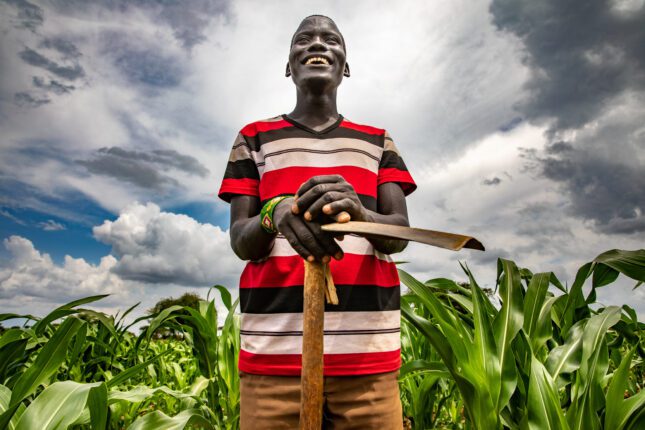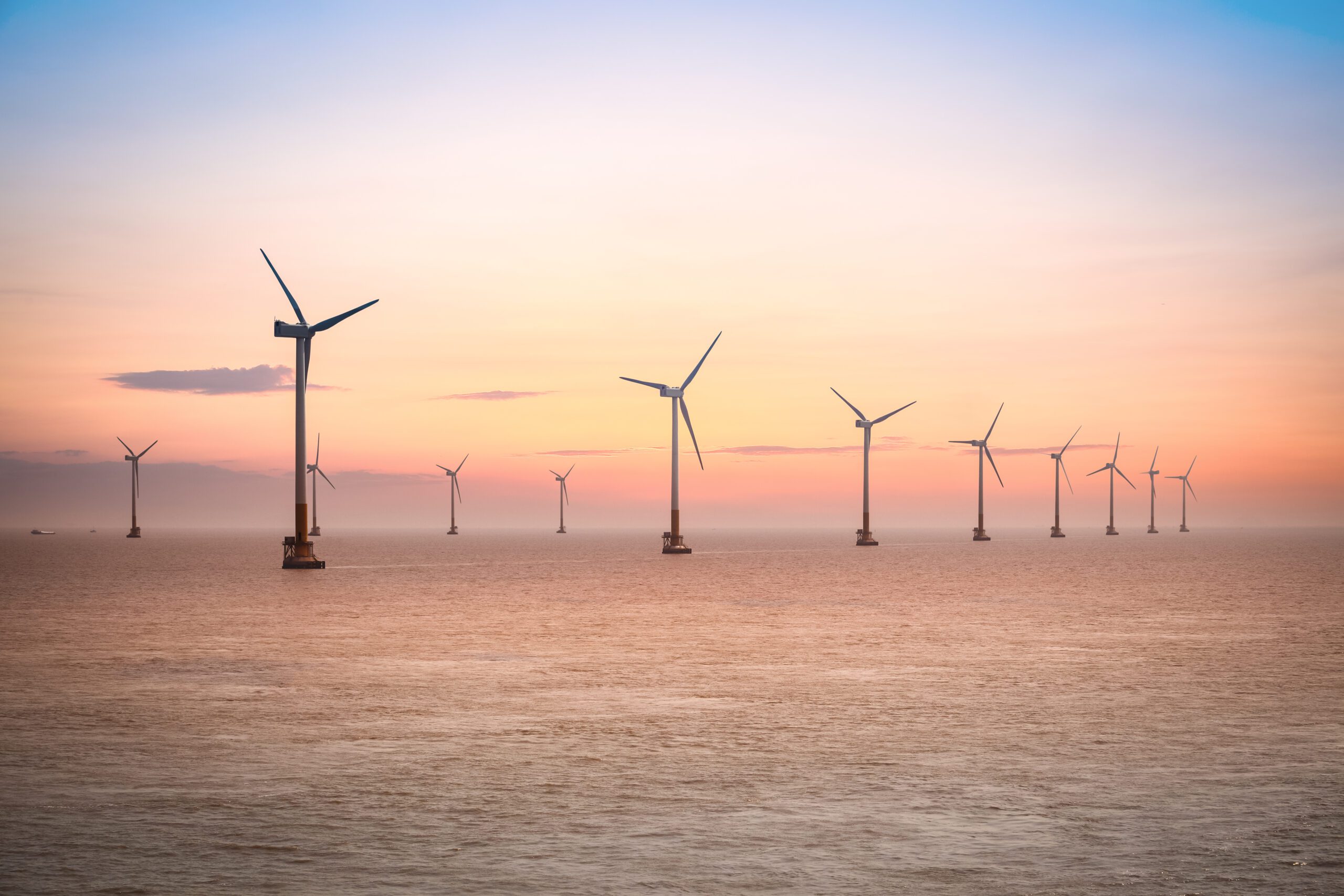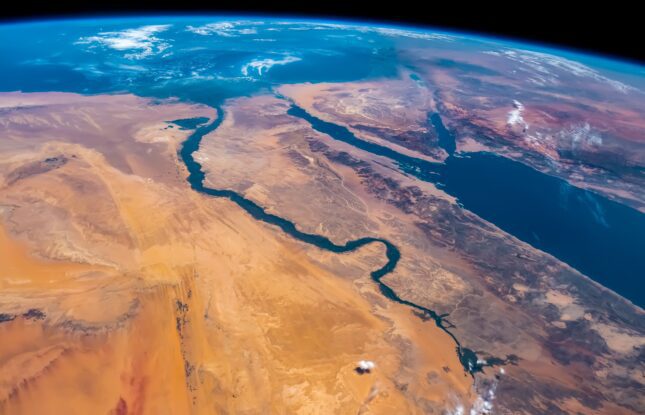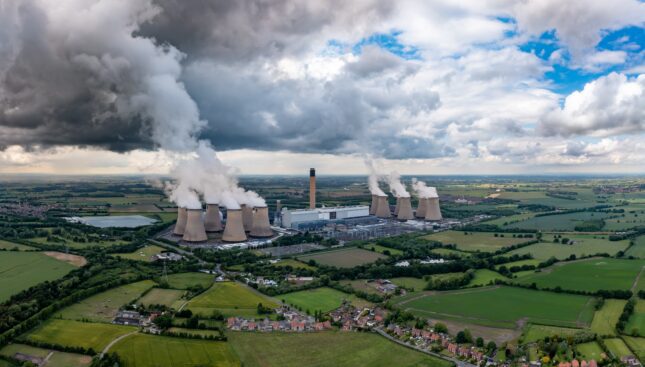-
New Tool Offers Key Insights for Tackling Climate and Conflict Challenges
›
When the White House released the US Framework for Climate Resilience and Security in September 2024, it was an important opportunity to highlight the significant impacts of climate change on US national security, economic, and strategic interests. The Framework also emphasized the need for tailored approaches in fragile, conflict-affected, and vulnerable (FCV) contexts, particularly in managing and allocating resources, as well as ensuring that climate finance addresses conflict drivers.
-
The Story Behind Climate Security and What it Means for US Foreign Policy
›
Hurricanes Helene and Milton battered the southeastern US in September and October and caused a combined estimate of $300 billion in damages. These storms were only the latest example of a cascade of disasters that is expected to worsen as climate change intensifies. Yet the impacts do not stop at dollars and human lives. Threats to security and stability also will multiply as rising temperatures increase the variability of rainfall patterns and the intensity of storms.
-
ECSP Weekly Watch | November 4 – 8
›
A window into what we’re reading at the Wilson Center’s Environmental Change and Security Program
Can Fighting Smog Be a Bridge in India-Pakistan Relations? (Al Jazeera)
The Swiss group IQAir has compiled and analyzed data from 14 regional monitoring stations and declared Pakistan’s capital Lahore to be the world’s most polluted city. Last Wednesday, for instance, Lahore’s air quality index (AQI) score was 1165, which then increased in a staggering fashion to 1900 AQI by the following Monday. India’s capital, New Delhi, was a close second for most-polluted city in the same survey, however. This cross-border pollution issue now has led government officials in both countries to reignite stagnant relations to pursue solutions.
-
China’s Offshore Wind Blows Away the Competition, For Now: Q&A with Trivium China’s Cosimo Ries
›China and the Global Energy Transition // China Environment Forum // November 7, 2024 // By Man-Hsuan Lin“The size and power output of China’s new offshore wind turbines are remarkable. We are talking about turbines almost 200 meters tall, with blades spanning the length of a football field. The amount of electricity they can generate is staggering.” enthused Cosimo Ries from Trivium China, who is a clear “fan” of offshore wind. And China’s turbines are getting bigger. The Dongfang Electric Corporation just rolled the world’s largest single-capacity offshore turbine (26MW) off the production line in Fujian Province this October.
-
Finding a Place for “The Planetary?”
›
One of academia’s latest buzz phrases is “the planetary.” While it may seem on the surface to lack a clear connection with climate security, a closer inspection suggests that this term does have significant relevance to discussions about this key concept.
Use of “the planetary” is an attempt to compel people to think much more carefully about the current human condition. The climate crisis—as well as the extinction event we are living through—are challenging contemporary notions that humans are somehow separate from nature. In short, a relatively stable world in which our infrastructure, economies, and modes of thinking remain rooted is no longer a useful construct.
-
The 2024 Emissions Gap Report: A Clarion Call for Mandatory Commitments?
›
A new United Nations report calls upon countries to deliver drastically stronger action on climate change. “Emissions Gap Report 2024: No more hot air…please!” is intended to raise the alarm at a significant moment: less than a month before nations head to Azerbaijan for COP29, and just a few months before the preparation and submission of new nationally determined contributions (NDCs) next February ahead of COP30 in Brazil.
-
New Security Brief | Pioneering Solutions: Climate Finance, Gender Equity, and Sexual and Reproductive Health Services
›
This article is adapted from “Pioneering Solutions: Climate Finance, Gender Equity, and Sexual and Reproductive Health Services”
A warming world is leading to new challenges for communities and countries around the globe. The significant impacts of climate change on global health, and on women and girls, are well-documented. Yet despite the evidence, funding for climate responses that focus on health or gender remains relatively low. In the rare instances where climate finance provides funds to improve health services, sexual and reproductive health (SRH) services—which are critical to women’s full participation in society and decisionmaking—are largely neglected.
-
The Arc | Climate Justice in the Arctic: Part 3
› In today’s episode of The Arc, ECSP’s Claire Doyle and Angus Soderberg interview Eva Maria Fjellheim, a southern Saami researcher at the Arctic University of Norway, for the final episode of our mini-series focused on climate justice in the Arctic. We explore Eva Maria’s research on strengthening Indigenous peoples’ land rights in the face of growing climate and clean energy projects. She shares insights from legal battles in Norway and connects the encroachment on Saami land to similar trends with Indigenous communities in Latin America and elsewhere. Eva Maria also discusses how current climate policies may be missing the mark by failing to truly respect Indigenous rights. Select quotes from the interview are featured below:
In today’s episode of The Arc, ECSP’s Claire Doyle and Angus Soderberg interview Eva Maria Fjellheim, a southern Saami researcher at the Arctic University of Norway, for the final episode of our mini-series focused on climate justice in the Arctic. We explore Eva Maria’s research on strengthening Indigenous peoples’ land rights in the face of growing climate and clean energy projects. She shares insights from legal battles in Norway and connects the encroachment on Saami land to similar trends with Indigenous communities in Latin America and elsewhere. Eva Maria also discusses how current climate policies may be missing the mark by failing to truly respect Indigenous rights. Select quotes from the interview are featured below:
Showing posts from category climate change.








 In today’s episode of The Arc, ECSP’s Claire Doyle and Angus Soderberg interview Eva Maria Fjellheim, a southern Saami researcher at the Arctic University of Norway, for the final episode of our mini-series focused on climate justice in the Arctic. We explore Eva Maria’s research on strengthening Indigenous peoples’ land rights in the face of growing climate and clean energy projects. She shares insights from legal battles in Norway and connects the encroachment on Saami land to similar trends with Indigenous communities in Latin America and elsewhere. Eva Maria also discusses how current climate policies may be missing the mark by failing to truly respect Indigenous rights. Select quotes from the interview are featured below:
In today’s episode of The Arc, ECSP’s Claire Doyle and Angus Soderberg interview Eva Maria Fjellheim, a southern Saami researcher at the Arctic University of Norway, for the final episode of our mini-series focused on climate justice in the Arctic. We explore Eva Maria’s research on strengthening Indigenous peoples’ land rights in the face of growing climate and clean energy projects. She shares insights from legal battles in Norway and connects the encroachment on Saami land to similar trends with Indigenous communities in Latin America and elsewhere. Eva Maria also discusses how current climate policies may be missing the mark by failing to truly respect Indigenous rights. Select quotes from the interview are featured below:

